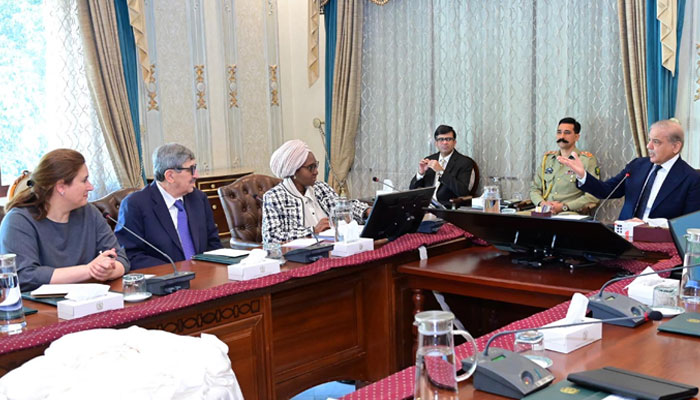Not loans but investment our priority, says PM
PM says credit for economic turnaround went to hard work of government’s economic team
ISLAMABAD: Prime Minister Muhammad Shehbaz Sharif Monday said the government prioritised investment and partnerships rather than relying on loans.
He expressed these views during a meeting with a delegation of the World Bank executive directors, said the PM Office Media Wing in a press release.
Ministers Ahsan Iqbal, Ahad Khan Cheema, Sardar Owais Khan Leghari, Dr Musadik Malik, Ministers of State Ali Pervaiz Malik and Shaza Fatima Khawaja, Prime Minister’s Coordinator Romina Khurshid Alam, Senator Sherry Rehman, Nafisa Shah MNA, Prime Minister’s Representative for Polio Program Ayesha Raza Farooq, and senior officials attended the meeting.
“The country’s economy is on the right path and is moving towards growth,” the press release quoted the prime minister as saying, reports APP.
He also stressed that sustainable economic development required further efforts. Shehbaz said the credit for economic turnaround went to the hard work of the government’s economic team.
He observed that Pakistan’s exports and remittances were increasing, adding that reduction in the interest rates was boosting investment in the production sector.
He further said the government was introducing transparency in the system to control corruption. Digitization remained a priority in the Federal Board of Revenue (FBR) reforms, he reiterated.
He said the power sector reforms aimed to ensure uninterrupted electricity supply and reduce losses. “The Special Investment Facilitation Council (SIFC) has created an attractive environment for investment in Pakistan, functioning under a unique system involving all stakeholders,” he added.
The prime minister said Pakistan had completed several key development projects with the cooperation of the World Bank (WB), which were playing a vital role in the country’s progress. He said the partnership between the World Bank and Pakistan spanned over seven decades.
“Pakistan has greatly benefited from its partnership with the World Bank,” he said, adding the bank provided substantial assistance to the people affected by the 2022 floods. Shehbaz observed that the recent Country Partnership Framework of the World Bank included an investment of $40 billion in Pakistan which was highly encouraging.
With $20 billion allocated for various projects in health, education, youth development, and other social sectors, a new chapter of progress would begin in Pakistan, he added. The prime minister said an additional $20 billion investment in the private sector under the International Finance Corporation (IFC) would accelerate the country’s economic growth.
Appreciating the WB’s trust in the government policies, he said Pakistan’s institutional and economic reform programme was moving rapidly. The delegation members praised Pakistan’s ongoing reform programme and its effective implementation.
The positive outcomes of the government’s ongoing reform initiatives were being felt, which was a promising development, the delegation noted. They said under the leadership of Prime Minister Shehbaz Sharif, Pakistan’s journey of economic reforms was progressing fast.
The nine-member delegation will discuss economic development projects and investment opportunities in Pakistan. The delegation also met with the Sindh Chief Minister Syed Murad Ali Shah and the provincial cabinet members at the Sindh House, Islamabad.
The delegation felt happy to see that the funds given for the projects in Sindh were being used properly and the projects were being completed transparently and quickly, says a press release.
Murad told the delegation that two-thirds of the province was severely affected during the flood after which the federal and Sindh governments and World Bank worked together. The bank immediately approved 1.6 billion dollars for the rehabilitation of flood victims.
He said the provincial government started building houses at a fast pace under the directions of the PPP Chairman Bilawal Bhutto Zardari and looked forward to a stronger partnership with the World Bank. The high-level delegation was briefed on the ongoing projects in Sindh with the support of the World Bank.
Chairman Planning and Development Department Dr. Najam Ahmad Shah told the delegation that 13 projects were underway with the support of the World Bank including the Solid Waste Emergency and Efficiency Project, Karachi Water and Sewerage Services Improvement Project, Sindh Solar Energy Project, Karachi Mobility Project, Sindh Early Learning Enhancement Through Classroom Transformation, Sindh Water and Agriculture Transformation Project, Sindh Barrages Improvement Project, Sindh Livestock and Aquaculture Sector Transformation Project and National Health Support Program. He said work on the projects was going on rapidly. Five projects are also in the pipeline with the World Bank support.
Mehtab Haider adds: In a related development, IMF Managing Director Kristalina Georgieva has praised Finance Minister Mohammad Aurangzeb for staying on course despite facing difficulties.
“I want to share a secret with the audience that the minister likes his job despite facing all difficulties,” Kristalina praised Aurangzeb while hosting a debate in the Kingdom of Saudi Arabia on the challenges facing the emerging markets on Sunday.
“This is indeed a right trajectory to travel and I thank for his dedication to stay on the course,” she said. Earlier, Aurangzeb said the debt to GDP ratio had been brought down from over 73 percent to mid-60s and Pakistan would make it sustainable as it moved forward.
He said the country would move toward an export-led growth for achieving sustainability. “Pakistan will have to fundamentally change the DNA of the economy,” he added. On this point, the IMF’s managing director said it was the right trajectory to move forward.
Meanwhile, Minister for Economic Affairs Ahad Cheema welcomed a delegation of executive directors (EDs) and alternate executive directors (AEDs) from the World Bank Group (WBG).
The minister said the visit of third high-level delegation from the bank in a limited time reflected its confidence in Pakistan’s vibrant and impactful ongoing economic reform process and its strong partnership with Pakistan.
He outlined the government’s priority to privatize the state-owned enterprises (SOEs), recognising that approximately one-third of the enterprises comprised strategic assets. He reiterated the government’s goal to privatize the remaining SOEs in phases.
In the first phase, the government is focusing on the privatization of power distribution companies (DISCOS) followed by the Pakistan International Airlines (PIA) and other SOEs. The minister shared that the government aimed to privatize up to 50 SOEs over the next 3-4 years.
Cheema also emphasized the critical challenges currently facing the power sector, including high tariffs for the consumers, significant losses in line efficiency, and ongoing efforts to achieve full cost recovery for the sector.
He acknowledged that renewable energy resources and addressing line losses were among the main areas of focus for Pakistan’s energy strategy. Highlighting the ongoing digitalization efforts, Cheema said Pakistan was making significant strides in the digital transformation of its economy and mentioned that comprehensive research and review of digitalization models had been completed, and the country was now advancing towards end-to-end digitalization of its institutions.
In response to a question about the youth employment and women’s empowerment, the minister emphasized that the government was making substantial progress in both areas. Technical training programs for the youth and women empowerment initiatives are running successfully, with adequate budgetary allocations to ensure their expansion, he said, adding that the training programs related to IT were going well, and “we are one of the largest countries having trained freelancers.”
The minister also provided an update on Pakistan’s economic stability, pointing out that the circular debt levels were low, and the currency was recovering thanks to the government’s effective measures.
He highlighted that Pakistan’s economy was on a positive trajectory with increased Public Sector Development Program (PSDP) funding aimed at strengthening infrastructure and social development projects.
In their remarks, the WB delegates commended the Government of Pakistan for its commitment to reforms and the remarkable progress made in addressing critical challenges.
They expressed the World Bank’s strong support for Pakistan’s new CPF and affirmed that the World Bank remained steadfast in its partnership with Pakistan to help achieve its development goals.
They also acknowledged the government’s comprehensive reform agenda and highlighted the importance of aligning efforts to address urgent needs such as climate change, governance, and gender equality.
Cheema underlined the need to develop a comprehensive strategy to address the key implementation issues such as project preparation and readiness, procurements, land acquisition etc. to successfully achieve the expected outcomes of the new CPF. He also expressed deep appreciation for the longstanding and unwavering support provided by the World Bank in Pakistan’s development journey.
-
 Sharon Stone Lashes Out At Fellow Award Show Attendees After Stealing Accusations
Sharon Stone Lashes Out At Fellow Award Show Attendees After Stealing Accusations -
 Gwyneth Paltrow Reveals Real Reason She Said Yes To 'Marty Supreme'
Gwyneth Paltrow Reveals Real Reason She Said Yes To 'Marty Supreme' -
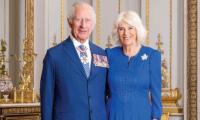 King Charles Says He And Queen Camilla Stand With People Of Ukraine
King Charles Says He And Queen Camilla Stand With People Of Ukraine -
 Ben Affleck Argues In Favour Of His Shirtless Scene In 'The Rip'
Ben Affleck Argues In Favour Of His Shirtless Scene In 'The Rip' -
 Mississippi Postal Worker Arrested After Complaints Of Marijuana Odour In Letters
Mississippi Postal Worker Arrested After Complaints Of Marijuana Odour In Letters -
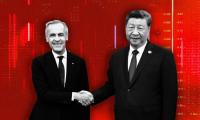 Canada, China Lock Initial Trade Deal On ‘EV,Canola’ To Strengthen Ties: What To Expect Next?
Canada, China Lock Initial Trade Deal On ‘EV,Canola’ To Strengthen Ties: What To Expect Next? -
 Melissa Leo On Euphoria Of Winning An Oscar Vs It's Impact On Career
Melissa Leo On Euphoria Of Winning An Oscar Vs It's Impact On Career -
 Meghan Markle, Prince Harry Express 'hope' In Latest Major Statement
Meghan Markle, Prince Harry Express 'hope' In Latest Major Statement -
 Sophie Turner Backs Archie Madekwe As BAFTA Announces Nominees
Sophie Turner Backs Archie Madekwe As BAFTA Announces Nominees -
 Jason Momoa Cherishes Hosting Ozzy Osbourne's Final Gig Ahead Of His Death
Jason Momoa Cherishes Hosting Ozzy Osbourne's Final Gig Ahead Of His Death -
 Real Reason Timothee Chalamet Thanked Kylie Jenner At Awards Revealed
Real Reason Timothee Chalamet Thanked Kylie Jenner At Awards Revealed -
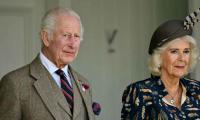 Will King Charles Attend Funeral Of Prince Philip's First Cousin, Princess Irene?
Will King Charles Attend Funeral Of Prince Philip's First Cousin, Princess Irene? -
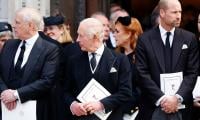 'Furious' Prince William Wants Andrew As Far Away As Possible
'Furious' Prince William Wants Andrew As Far Away As Possible -
 Blood Moon: When And Where To Watch In 2026
Blood Moon: When And Where To Watch In 2026 -
 Apple Foldable IPhone Tipped For 2026 Launch With A20 Pro Chip And C2 Modem
Apple Foldable IPhone Tipped For 2026 Launch With A20 Pro Chip And C2 Modem -
 Meghan Lends Credence To Reports Of Rift With Kim Kardashian On Chicago's Birthday
Meghan Lends Credence To Reports Of Rift With Kim Kardashian On Chicago's Birthday
